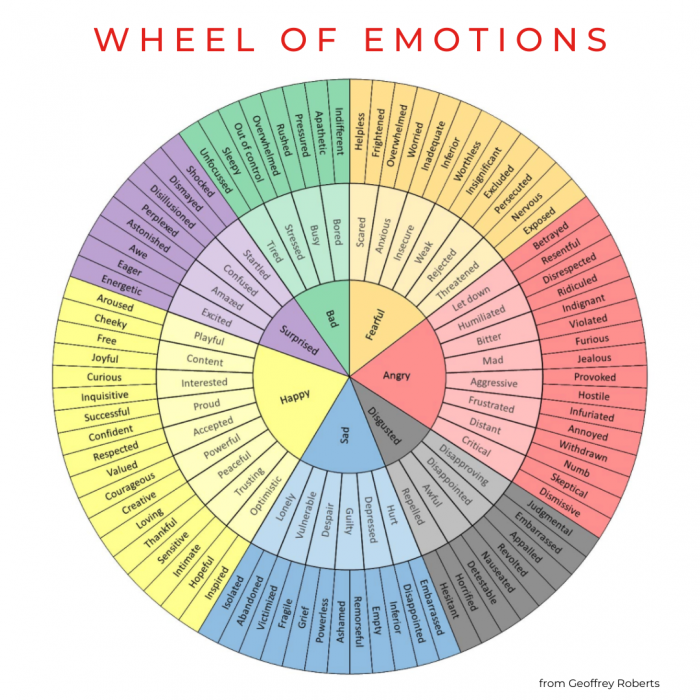Did you know that 30% of Fortune 500 leaders last less than three years, because they are not good at leading self? There is a general misperception that leadership is always something that is done to other people. Fact is that successful and impactful leadership of others always includes and starts with leading self.
I have worked with dozens of coaching clients helping them to realise their potential and become better leaders. One reoccurring challenge holding them back is fear.
“The brave man is not he who does not feel afraid, but he who conquers that fear.” –Nelson Mandela
Fear is one of the eight emotions that recent research in neuroscience shows, underpins all the ways that people think, act and feel. Of the eight, fear is the most destructive emotion of all and is the one most easily triggered. Recognising your fears and acknowledging them for what they are allows any leader to create a productive outcome.
I was working with a client in the finance industry who wanted to work on his challenge of ‘overthinking’. His goal was to make faster and bolder decisions which his team relied on. What he uncovered was a long-established fear of making mistakes (vs. a lack of process as he initially thought) which led him to delayed responses, lack of decision making and being hesitant in his communication. I remember the day we used the ‘Wheel of Emotions’ and he labelled his emotions around the issue as being 1. Scared, 2. Insecure, 3. Inferior. from the inside out.

He felt he was hesitant to make a decision and overthinking things because he was scared to make a mistake. That made him feel insecure about being able or having the right or the skill to make that decisions (‘what if I am wrong?’) which in turn put him in an inferior position to others in his team and organisation. Big a-ha moment because he now knew the cause of his fear and could put appropriate strategies in place. And he did.
What is fear and how is it holding us back?
One popular definition of fear is ‘A distressing emotion aroused by impending danger, evil, pain, whether the threat is real or imagined.’ Our primal fears are innate, refined by our experiences for ultimate survival. Our brain constantly scans for threats and our amygdala (reptilian brain) activates a physical response (fight or flight) when it perceives a stimulation or situation as a threat. So, our brain protects us but if it doesn’t differentiate between a sabre-toothed tiger and a shitty email from our boss (or in my client’s case the thought of being inferior), the fight or flight response can paralyse us.
A survey of global leaders shows these fears are most frequently expressed:
- Fear of failure (inadequacy)
- Fear of being abandoned (being isolated or excluded)
- Fear of criticism (ego)
- Fear of being an imposter (not good enough or qualified)
- Fear of making a mistake (not moving forward)
“We need braver leaders and more courageous cultures.” -Brene Brown
How fear impacts leadership
What we observe in workplace cultures of fear and lack of bravery is people avoiding productive conflict, giving and receiving feedback and having tough conversations. People don’t trust each other to challenge the status quo or ask for help. In Lencioni’s 5 dysfunctions of a team, this is right at the bottom of the pyramid. What we also observe is finger pointing vs. taking ownership, people not taking risks due to a lack of psychological safety and people being held back from learning and developing as perfectionism ranks high. Fear compromises our conversations and effective relationships. Fear doesn’t only affect workplace culture, it directly impacts the bottom line.
How can we conquer fear as a leader?
Conquering fear is not about fighting fear or suppressing it. It’s about our response to fear. Understanding how it is triggered and applying useful strategies to live and work with it. Brene Brown says that it’s not fear that gets in the way of brave leadership, it’s the armour -the way we protect ourselves. How we respond to fear, our emotions, thoughts and actions is what helps us to conquer fear.
The Happiness Movement
Dr. Adam Fraser explains conquering fear in the context of ‘sitting in discomfort’. The fact that we think that negative emotions are bad and positive emotions are good has perverted our relationship with struggle. He calls it the Happiness Movement. Conquering fear means sitting in discomfort and action anyway vs. waiting for us ‘to feel good’.
I have created this Bravery Model with strategies to conquer fear:

Awareness – label your emotions. First get clarity on what kind of fear you are feeling and what triggers it. The wheel of emotions helps with wording and exploring. You might find that the emotion is not fear after all. Anxiety and excitement, in fact, are very similar in the way the brain responds. It’s about how you label it and, if necessary, reframe it.- Respond – from head to heart to limbs. It is much easier to change your physical body than your mind. In a coaching session I often stand up with my coachee when I feel they need a shift or change to gain a different perspective. Sometimes we can’t shift our thinking easily but our bodies can. For example, when I get nervous during public speaking, it doesn’t help to think ‘calm down’ but breathing or moving across the stage helps me to shift. It’s about finding out where in our body to focus to get our ‘thinking and decision making brain back’.
- Vulnerability – own your fear. Brene Brown defines vulnerability as the emotion that we experience during times of uncertainty, risk and emotional exposure. Vulnerability is not a weakness. Being courageous requires vulnerability, being authentic, being ok with getting it wrong, asking for help. Brene calls it ‘ramble with vulnerability’.
- Reframe – where is the proof? Fear is often triggered by the stories we tell ourselves, the stories in our head. Like my client telling himself ‘I am not qualified to make this decision, what if I am wrong?’ Ask yourself the question: ‘Where is the proof of this being true, that being actually happening or these people responding in a certain way?’ What you most often find is ‘that you are making it up’. But your brain triggers a physical reaction anyway because it can’t differentiate between a real threat or the negative story in your head. Research shows that 85% of what we worry about doesn’t actually happen.
- Sit in discomfort – feel it but action anyway. Don’t wait for ‘negative feelings to turn positive’. Resilient leaders manage to sit in discomfort and action anyway. If you feel you are out of your comfort zone, you are in the right zone. Think of it as actions, not you as a person. Courage is less about who we are but more about how we behave.
- Courage is contagious – create a culture where everyone embraces fear. Conquering fear starts with yourself but make sure you create a culture where no armour is necessary. Your people should feel psychologically safe to be vulnerable, admit mistakes, ask questions and challenge directly. If you want everyone to conquer fear it’s up to and your team to address fear for what it is and create a workplace culture where fear is embraced and fear is your fire.
If you want to work with me, contact me on info@intactteams.com








